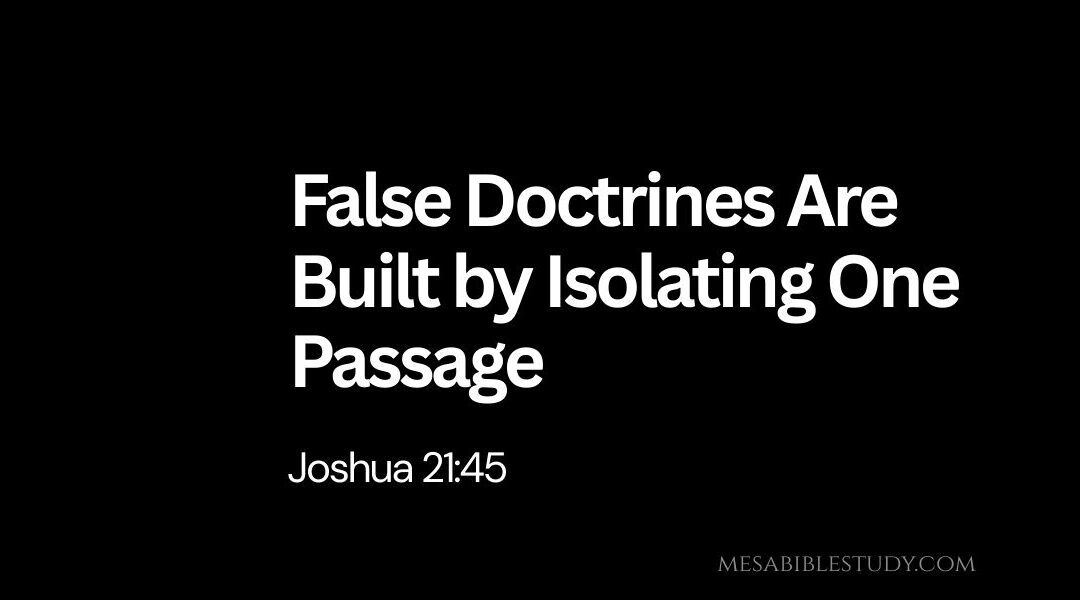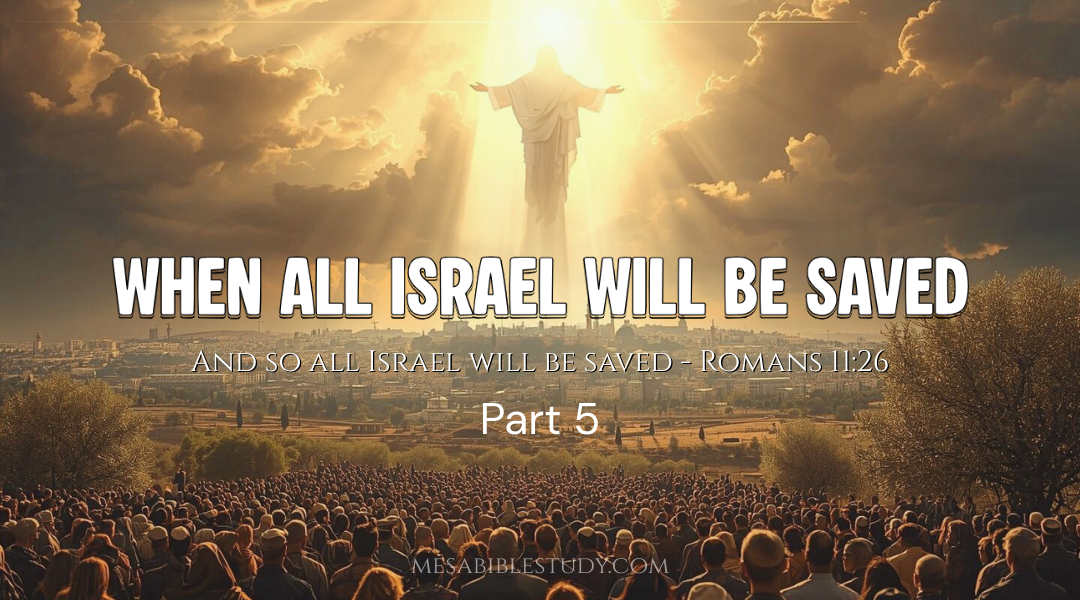
Why Joshua 21:45 Does NOT Mean God Is Finished with Israel
A Clear Biblical Response to the Joshua 21:45 Claim
Joshua 21:45 is frequently quoted to argue that all of God’s promises to Israel were completely fulfilled in the Old Testament, leaving no future for Israel. That claim is biblically false and rests on selective reading, not sound doctrine.
1. What Joshua 21:45 Actually Says—and What It Does Not Say
Joshua 21:45 states that God fulfilled His promises regarding Israel’s initial conquest and settlement of the land at that time. The context is military victory and tribal allotment, not the total fulfillment of every covenant God ever made with Israel.
If Joshua 21:45 means everything was fulfilled permanently, then Scripture immediately contradicts itself—because after Joshua, God continues to promise Israel:
- Greater land boundaries they never possessed (Genesis 15:18; Exodus 23:31)
- A future Davidic King reigning from Jerusalem forever (2 Samuel 7:12–16)
- A national restoration after scattering (Deuteronomy 30:1–5)
- A future repentance and salvation of Israel (Zechariah 12:10; Romans 11:26)
Joshua 21:45 affirms God’s faithfulness in that generation, not the exhaustion of all covenant promises for all time.
2. Scripture Explicitly Says the Land Was Not Fully Possessed
Even within the Old Testament itself, we are told plainly that Israel did not possess all the land promised:
- Judges 1:27–36 – Large portions of the land remained unconquered
- Joshua 13:1 – “There remains very much land yet to be possessed”
- 1 Kings 8:56 – God fulfilled promises of rest, not the eternal kingdom
If Joshua 21:45 closed the book on Israel’s future, these passages make no sense.
3. The Abrahamic and Davidic Covenants Are Unconditional and Eternal
God’s promises to Israel were not contingent on obedience and not limited to Joshua’s era:
- Genesis 17:7–8 – An everlasting covenant with Abraham’s descendants
- Jeremiah 31:35–37 – Israel will exist as a nation as long as the sun and moon exist
- Psalm 89:34–37 – God will not alter His covenant with David
Paul confirms this plainly:
“The gifts and the calling of God are irrevocable.” (Romans 11:29)
If Joshua 21:45 canceled Israel’s future, Paul would not write Romans 9–11.
4. Paul Explicitly Rejects the “All Fulfilled” Argument
Paul wrote after the cross, after Pentecost, after the Church began—and he still declares:
- Israel’s blindness is temporary (Romans 11:25)
- Israel’s election is still intact (Romans 11:28)
- All Israel will be saved (Romans 11:26)
Paul never appeals to Joshua 21:45 to deny Israel’s future. Instead, he warns Gentile believers not to boast against the branches (Romans 11:18).
5. The Real Issue: Selective Scripture to Support a System
Using Joshua 21:45 to erase Israel requires ignoring:
- The Prophets
- The Psalms
- The Gospels
- Romans 9–11
- Revelation 20
- The New Jerusalem (not “New Gentile”)
That is not doctrine—it is proof-texting.
Sound doctrine allows all Scripture to speak (2 Timothy 3:16), not just verses convenient to a theological system.
Bottom Line
Joshua 21:45 affirms God’s faithfulness in Israel’s early history.
It does not cancel:
- Israel’s future restoration
- Israel’s national repentance
- Israel’s promised kingdom
- Israel’s role in God’s prophetic plan
Any theology that uses Joshua 21:45 to claim “God is finished with Israel” must ignore massive portions of Scripture—including Paul’s clearest warnings to the Church.
And Paul anticipated this very error.
Truth is not built on isolated verses—but on the whole counsel of God.



